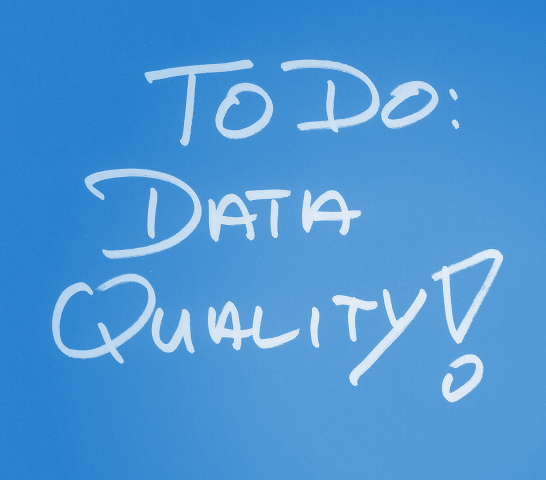In the movie Big, a 12-year-old boy, after being embarrassed in front of an older girl he was trying to impress by being told he was too short for a carnival ride, puts a coin into an antique arcade fortune teller machine called Zoltar Speaks, makes a wish to be big,
Tag: master data management

Utilizing big data analytics is currently one of the most promising strategies for businesses to gain competitive advantage and ensure future growth. But as we saw with “small data analytics,” the success of “big data analytics” relies heavily on the quality of its source data. In fact, when combining “small” and “big” data
Since now is the time when we reflect on the past year and make resolutions for next year, in this post I reflect on my Data Roundtable posts from the past year and use them to offer a few New Year’s data resolutions for you and your organization to consider in

I have participated in many discussions about master data management (MDM) being “just” about improving the quality of master data. Although master data management includes the discipline of data quality, it has a much broader scope. MDM introduces a new approach for managing data that isn't in scope of traditional data quality
With our recent client engagements in which the organization is implementing one or more master data management (MDM) projects, I have been advocating that a task to design a demonstration application be added to the early part of the project plan. Many early MDM implementers seem to have taken the
For a long time, master data management (MDM) practitioners boasted about their ability to build a 360° view of customers by aggregating and proactively managing information coming from various business applications such as CRM systems, ERP applications, and other operational systems. But was it really a 360° view? What about
In the last post we looked at the use case for master data in which the consuming application expected a single unique representative record for each unique entity. This would be valuable in situations for batch accesses like SQL queries where aggregates are associated with one and only one entity record.
Last time I suggested that there are some typical use cases for master data, and this week we will examine the desire for accessibility to a presumed “golden” record that represents “the single source of truth” for a specific entity. I put both of those terms in quotes because I
So much for a single version of the truth.
I have probably touched on this topic many times before: accessing the data that has been loaded into a master data environment. In recent weeks some client experiences are really highlighting something that is increasingly apparent (and should be obvious) for master data management: the need to demonstrate that it




